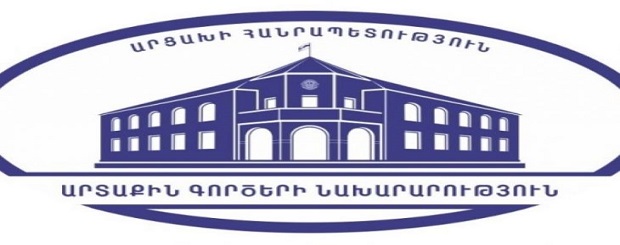
December 28, 2018
The Memorandum by the Ministry of Foreign Affairs of the Republic of Artsakh on the issue of missing persons in the context of the Azerbaijan-Karabakh conflict was disseminated in the United Nations Organization (UN) on December 11. The document was placed on the UN official website, informs the press service of Artsakh’s foreign ministry.
The Memorandum, in particular, notes that the issue of missing persons in the context of the Azerbaijan-Karabakh conflict emerged long before the full-scale war, which was unleashed by Azerbaijan against the Republic of Artsakh (Nagorno Karabakh Republic) in 1991. Individual cases of hostage-taking and kidnapping of persons of Armenian nationality were taking place in Artsakh already in 1988–1989. The issue of hostages and missing persons became more acute as the conflict escalated. The practice of taking hostage persons of Armenian nationality became widespread during “Operation Ring” for the deportation of Armenian villages of Artsakh in 1991.
“Throughout the territory of Artsakh people were kidnapped, whereupon they found themselves in Azerbaijani prisons and other places of detention, where they were subjected to torture and other forms of cruel and inhuman treatment.
For eight months of 1991 only, 640 peaceful residents from different villages of Artsakh were illegally arrested or captured by Azerbaijani authorities; 127 Armenians were captured and sentenced on the ground of false accusations to different terms and 31 of them died as a result of widely practiced regular torture in Azerbaijani prisons and concentration camps”, the document reads.
The Memorandum also contains many well-documented facts about the torture of Armenian hostages and prisoners of war by the Azerbaijani side during the Azerbaijan-Karabakh conflict and after the signing of the 1994 ceasefire agreement.
The document also notes that by raising the issue of missing persons and at the same time rejecting any cooperation to address it, Azerbaijan is obviously pursuing a hidden agenda.
In particular, the Azerbaijani side is trying to manipulate the issue of prisoners of war and missing persons with a view to justifying crimes, committed by citizens of Azerbaijan Dilham Askerov and Shahbaz Guliyev, in the territory of the Republic of Artsakh.
This campaign is part of a state policy of incitement of Armenophobia in Azerbaijan and promotion of hate crimes against Armenians that has penetrated all spheres of public life. The existence of racism and xenophobia towards Armenians in Azerbaijan has been also confirmed in the documents of several international organizations.
yerakouyn.com/2018/12/28
